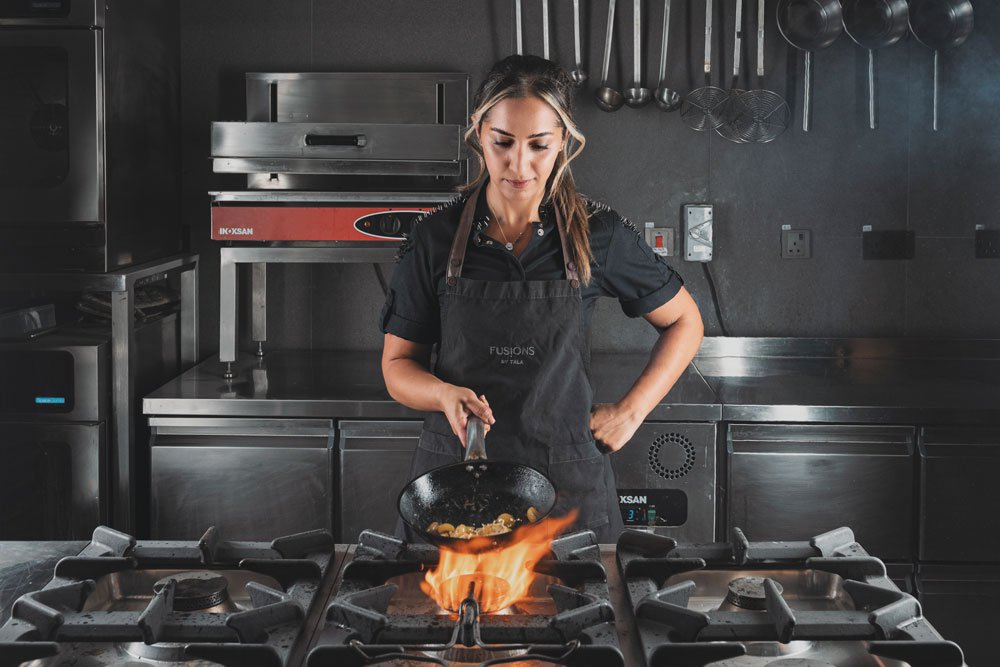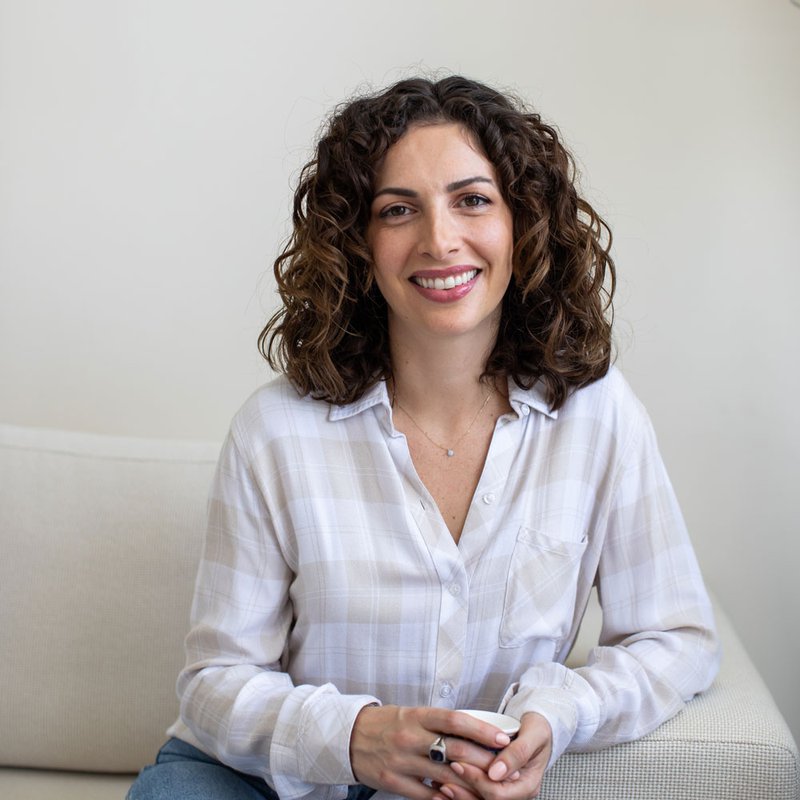From making giant pots of food for her sister and her friends in university, to being named the Middle East & North Africa’s Best Female Chef 2022, Tala Bashmi has worked her way to the top through sheer determination and hard work.
After moving back to Bahrain from university in the US and UK, she started baking for friends and going to food markets. But that wasn’t enough for Tala. She says, “I always aim to be the best I can be at something and if I can’t be the best or one of the best, that can be a hobby.” It was then she decided that she was going to be a chef.
She joined Gulf Hotel Bahrain as a trainee for six months and started out at the butchery. “We used to cut 40-60 kilos of meat a day. I remember my forearms were super sore,” she says with a laugh. “I started literally from the bottom. I don’t think I was allowed to cook a single dish. It was purely preparation and peeling and cleaning.”
Tala set about to prove to the hotel that she was serious about being a chef – which eventu-ally propelled her into the management training programme, where Bahrainis were sent abroad to pursue a degree in hospitality. After working across restaurants at the hotel, she attended the Culinary Arts Academy in Lucerne, Switzerland, for two years and received her Masters in International Business in Culinary Management. A year and a half of being sous chef at the Gulf Hotel later, she took over completely and rebranded the restaurant to Fusions by Tala in early 2020.
Taking over the restaurant wasn’t easy. She says, “The management said, ‘We will give you a year at the restaurant and we want to see what you can do with it.’” But Tala didn’t have much to work with – from a broken blender to a small crew. After a year, she says she was able to “increase profits significantly”, which resulted in a renovation of the restaurant into the version it is today.
Guest experience forms a major role in this process. “I had one guest who is still one of my best guests until today. He didn’t know who I was, showed up, saw the menu and said, ‘Give me whatever you want.’ And to this day I think he’s eaten more different dishes from me than anyone else I know. Because every time my guests get the tasting menu, I give them a different experience.”
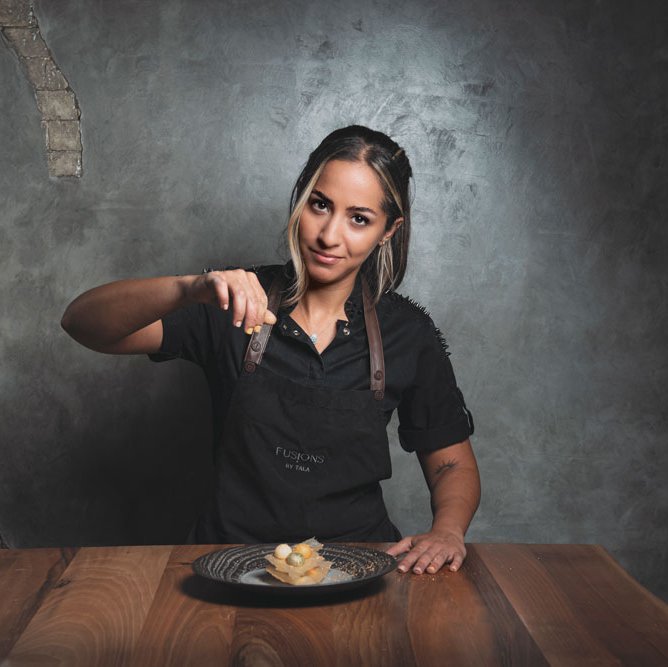
Tala Bashmi
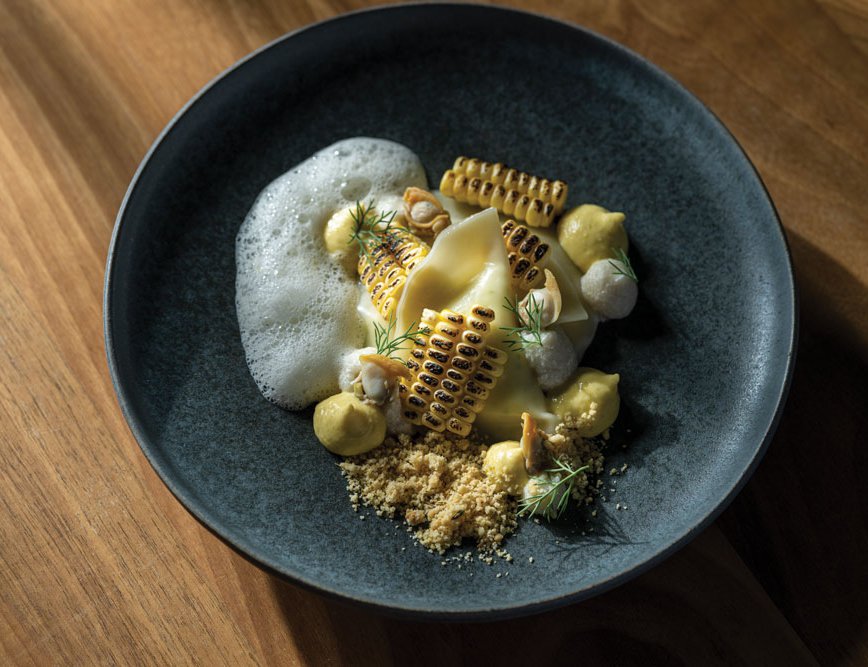
A dish from her menu titled ‘Corniche’
Tala’s two menus include an à la carte and a tasting menu. The former includes signature dishes like Bahraini tikka and bamia (a stew with okra and beef). Her tasting menu, however, is a different kettle of fish. She says, “You will look at my dishes and think there’s absolutely no connection or association with Arabic food but once you taste it…” She reiterates not being obvious about the connection. “I can use an ingredient that’s local that nobody else uses and that for me is cuisine. It’s terroir, it’s what grows on the land that I’m living in. If you look at French cuisine, it’s all based on terroir. I’m trying to utilise ingredients that grow on this land that are not known and infuse them into my dishes.”
She mentions a few fruits like looz (pronounced ‘lo-ze’) and bambar, and then discusses sea food – in abundance on the island nation. “Mahyawa is an ingredient we use in Bahrain which is a fish paste. It doesn’t taste fishy but everyone has this connection of fish paste being gross. It’s actually got such an umami flavour. We use it so simply with bread and eggs for breakfast. That’s one ingredient that I usually like my customers to try before explaining what it is.” Another seafood-based ingredient Tala uses is dried shrimp. “It concentrates flavour and umami, and it’s something that I use differently in my cooking; I use it almost like bottarga.”
She says, “It’s about being less obvious. You don’t have to be so in-your-face, you can use these [ingredients] and integrate them very discreetly.”
Talking about the importance of showcasing Bahraini cuisine, Tala asks me: “How many fine dining, or rather, not casual dining Middle Eastern restaurants exist?” She references the MENA’s 50 Best 2022 list, and adds, “I saw the list and I thought, OK they’ve come to the region but where are we on this map? We’re the one per cent. If you’re from a country, you want to take your guests somewhere to say, ‘this is where my food has come from, this is how far it’s come and this is what we want to show you about our culture.’ That was my goal: I want to have this restaurant to showcase Bahraini food, which is why it’s important for me to share our flavours.”
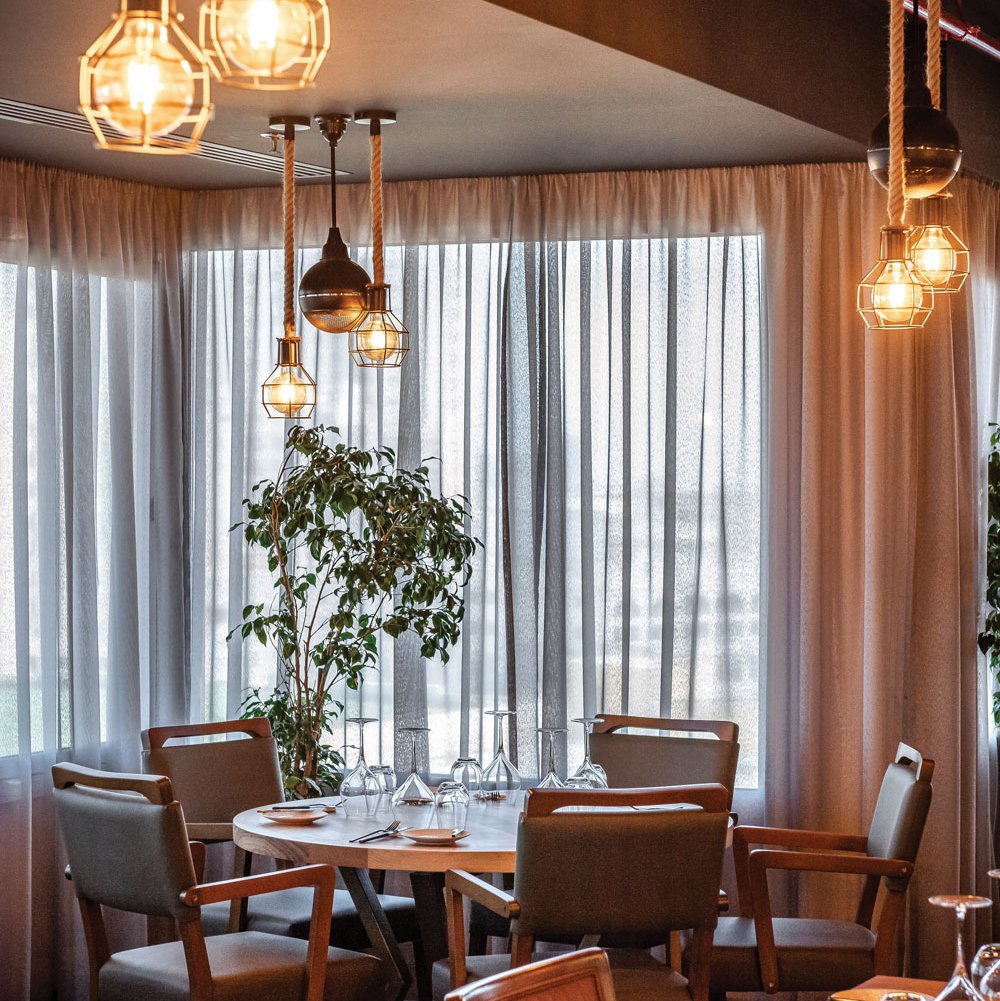
The restaurant was rebranded to ‘Fusions by Tala’ in early 2020
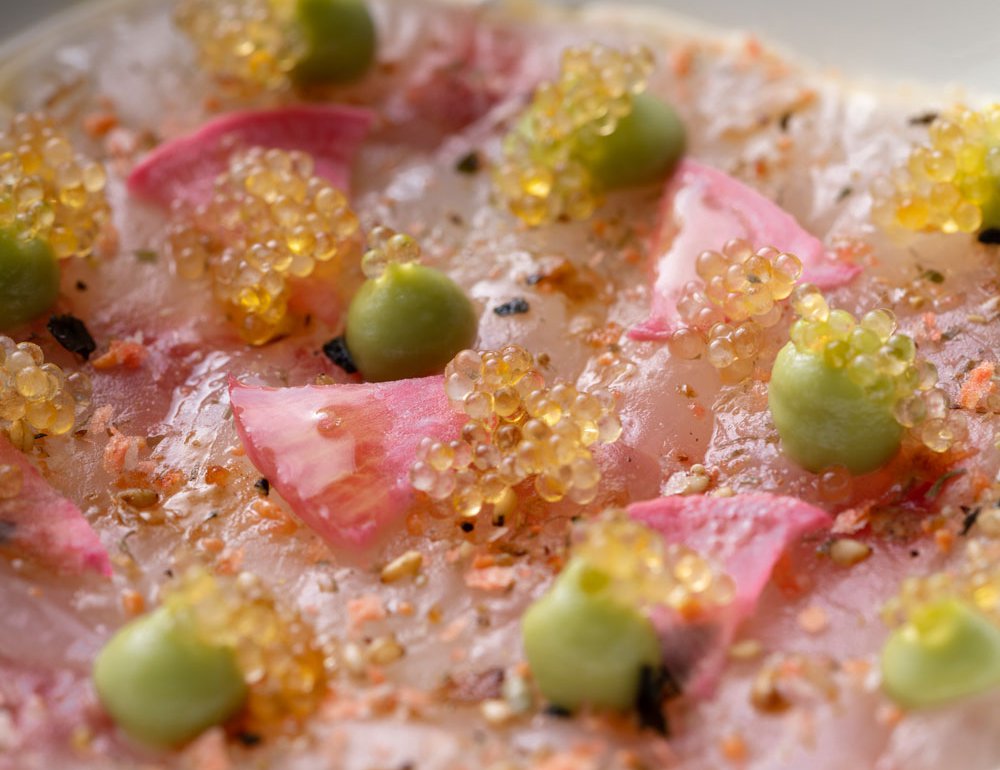
Sea bream carpaccio
She’s a big believer in supporting local and local farms, and says she visits the market once a week and maintains a good relationship with farmers. She says, “If I need something specific from them, I have their contact and tell them I need this much of the purple cauliflower, I need this much of the Romanesco, and they’re super helpful.”
She acknowledges that local ingredients have seasonality but it’s up to the chef to make a difference. “You need to be smart about it; that’s why my menu changes accordingly.
“I’m very inspired by Scandinavian cuisine: growing and preserving vegetables and fruits for the winter. I’ve been trying to apply that to our ingredients for the summer. Because it’s the same thing: nothing grows for them in the winter, for us it’s the summer.”
She continues: “I asked the farmer, ‘What do you do with all this broccoli that’s left over?’ I told them they need to think about whether to pickle them or even blanch them and then freeze them and keep them and use them later. What are you going to do, are you going to toss it all out?
“For example, the tomatoes I’ve created are in preserving liquid. So I’ve been playing around with different techniques – from putting it in a glass jar or vacuum – and I’m just trying to see which one will last the longest. I haven’t done this, so I just have to play around because our ingredients are different, our weather is different.”
Her perseverance is a beacon of light, and I wonder if this is one of the lessons she took away from football. Tala played football with the country’s national team for seven years before moving to the US to study sports management.
Tala had to stop playing after she sustained an injury, so she moved to London and studied Fine Arts before returning home.
She says: “I feel like I’ve grown up my whole life in uniform! What I took away from football was discipline. Because even when you’re tired, even when you’re sore, even when you have absolutely zero energy, you still have to get up and you have to train. You have to show up. At the end of the day, motivation would only get you so far. You could be motivated today and not tomorrow. Does that mean you’re going to skip training? Does that mean you’re not going to go to work? It’s discipline and having an ultimate goal and an ultimate focus. That will allow you to persevere and do something every single day to reach what you want to achieve.”
This ties back to her desire to be the best at whatever she sets out to do, further proven by her title win with MENA’s 50 Best 2022. It’s months after the announcement, but Tala says it hasn’t hit her yet. “I still feel the same, of course. In a sense, it couldn’t have come at a bet-ter time. It came at a time where I began overthinking things and wondering, ‘Am I on the right path, am I doing
the right thing, am I good enough?’ This was able to keep me on track and make me realise that I’m doing something right.
“Now we’ve got to go global. Middle Eastern food needs to be shown in a different light now and I hope I can be the one to do that.”
@tala.bashmi
